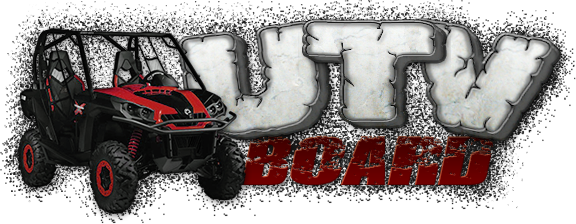tapered roller bearings
-
Similar Topics
-
By CSM_Retired
Greetings All,
I'm looking for the most effective way to quiet the noise inside the cab. The cab virtually sits atop the 24hp diesel engine. It's very loud and so I'm looking for ways to make inside the cab quieter.
-
By FTG-05
I want to ditch my Kubota RTV-XG850 and its moronic twitchy throttle design flaw, get rid of the problematic engine and the 40 mph purposely throttled speed.
So far, I'm looking at the Honda Pioneer 1000 and the Polaris Ranger 1000, both of which have 1000-1500 lb payload bed capacity.
What other makes and models should I be looking at?
Thanks for the help!
-
By didgeridoo
Hello, All! I've decided to replace the traction batteries in my 2018 Sector E1 with a 48V Lithium set. They may be expensive, but I figure the Discovery Dry Cell are, too. I am not looking for the max driving range, as I have never received near the brochured range to begin with, but a good mix of charge/ get work done/ charge is what I am expecting.
I have settled on the 48V EAGL kit from bigbattery dot com. Each battery pack provides 30Ah. The kit ships with a charger, as well. The packs would be physically connected in parallel (using a busbar) to one another, maintaining the 48V voltage, but together would be able to provide the amp draw the buggy pulls when going up hill or towing a rake (rated 320 max continuous Amps). This is in comparison to the serial connection the eight 6V lead batteries. Each of the EAGL batteries looks to have its own BMS; am I correct in thinking I will have to use their included charger rather than (simply) changing the onboard charger to lithium mode? The chemistry of the pack is LiFe PO4, for what it's worth. I haven't torn anything apart yet (to diagram), so I am not sure how the dash will interpret the AMP draw, but the kit I am looking at includes a dash mounted charge indicator.
If anyone has completed a similar conversion, do you have any tips? Specifically, how did you remove the original batteries, and how did you secure the new ones? I am guessing that almost any change from the stock batteries would involve at least some modifications. Any tips would be appreciated, especially things I may have failed to consider. Thanks!
-
By lincolnsq175
Ive searched and cannot find any performance parts that fit my machine.
I have a 2020 coleman ut400.
Im looking for machined sheave kit, programmers, cdi, exhaust and intake.
I know these are yamaha rhino clones but are they rhino 450 clones?
Any info is appreciated.
-
-
By SpaceGhost
As with any forum you join, there is a requirement for an obligatory introduction... and that seems fair. How else do you get that first post in there without jumping in with some stupid question right out of nowhere?
Hi. I'm Space Ghost. Well, not really, but that was my call sign on my last deployment before an IED made me non-deployable, and I an now retired/disabled, and living on my wonderful VA disability. I did almost 28 years in total between the Army, Army Reserve, and National Guard. 1 deployment with the Reserve (Desert Storm) and 3 with the Guard (1 pre, and 2 post 9/11)
Married (going on 30 years) one of each. (both out of the nest)
Just picked up my first side by side a couple days ago. A 2020 Can-Am Defender HD10 DPS 6x6.
It's in pretty good shape, but as you can probably tell, it's sitting a bit high. Former owner put a lifting collar on the shocks.
The good = almost 17" of ground clearance. (30" tires)
The bad = incredibly steep driveline angles, and a pretty stiff ride.
They will be coming off.
Other than that... clean as a pin and appears very well maintained.
Looking forward to seeing what this forum can bring, and hoping I can bring something in return.
-






Recommended Posts
Join the conversation
You can post now and register later. If you have an account, sign in now to post with your account.
Note: Your post will require moderator approval before it will be visible.